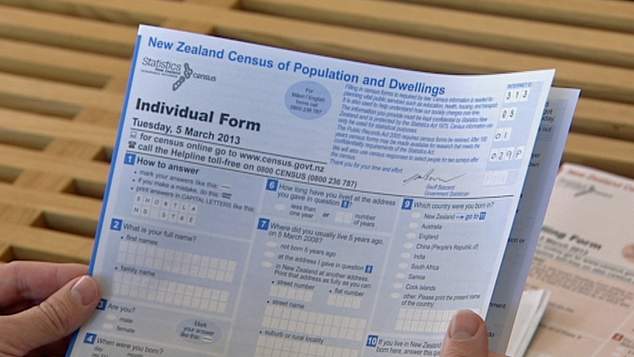
The New Zealand government has decided that questions of sex, sexuality, and gender will be left out of the 2018 census following 2016 and 2017 data collected having been ruled invalid on “statistical grounds”.
Statistics Minister James Shaw explained the decision last Monday to The AM.
“The problem is that people put down different answers, and they use different language to describe the same thing.”
“Gender identity poses challenges for statistical collection across the world,” Mr Shaw claimed. “There is not necessarily a ‘one size fits all’ resolution to collecting this information as people within the Rainbow community can identify in a range of ways.”
The LGBT community has a long history of being misrepresented statistically. Even the Australian Human Rights Commission adds a disclaimer on their website, stating that “due to a lack of comprehensive, publicly available data, it is difficult to estimate the total LGBTI population in Australia” and that “there are no firm figures for Australia’s intersex population.”
The question is, does difficulty in gaining and processing data justify leaving out the topic entirely?
Artist, activist, and gender diverse Aych McArdle doesn’t think so. They are calling it “at worst institutionalised homo/trans/intersex phobia” and “at best gross incompetence on a project with no internal momentum.”
They also outlined the history of documents calling for better records of LQBTI statistics leading up to this decision, including the 2007 To Be Who I Am Report, recommendations from the United Nations in 2016, and Stats NZ’s own 2010 report outlining how it would go about recording data on sexual orientation effectively.
Gay rights campaigner Steven Oates also joined the conversation claiming that that it is incredibly important to get a record of LGBT people, especially when it comes to distribution of government resources.
“In terms of health providers, social providers, organisations like Rainbow Youth, policy decisions, you’ve got to start somewhere – currently there’s no information.”
Statistics on the Rainbow community will instead be collected through the New Zealand General Social Survey. Mr Shaw agreed that the information is incredibly important to inform decisions made with health and education services, and confirms that the issue is ongoing.
“Frankly it’s incredible to me that it’s taken this long for us to even get to this stage.”
OIP Staff
Support OUTinPerth
Thanks for reading OUTinPerth. We can only create LGBTIQA+ focused media with your help.
If you can help support our work, please consider assisting us through a one-off contribution to our GoFundMe campaign, or a regular contribution through our Patreon appeal.



